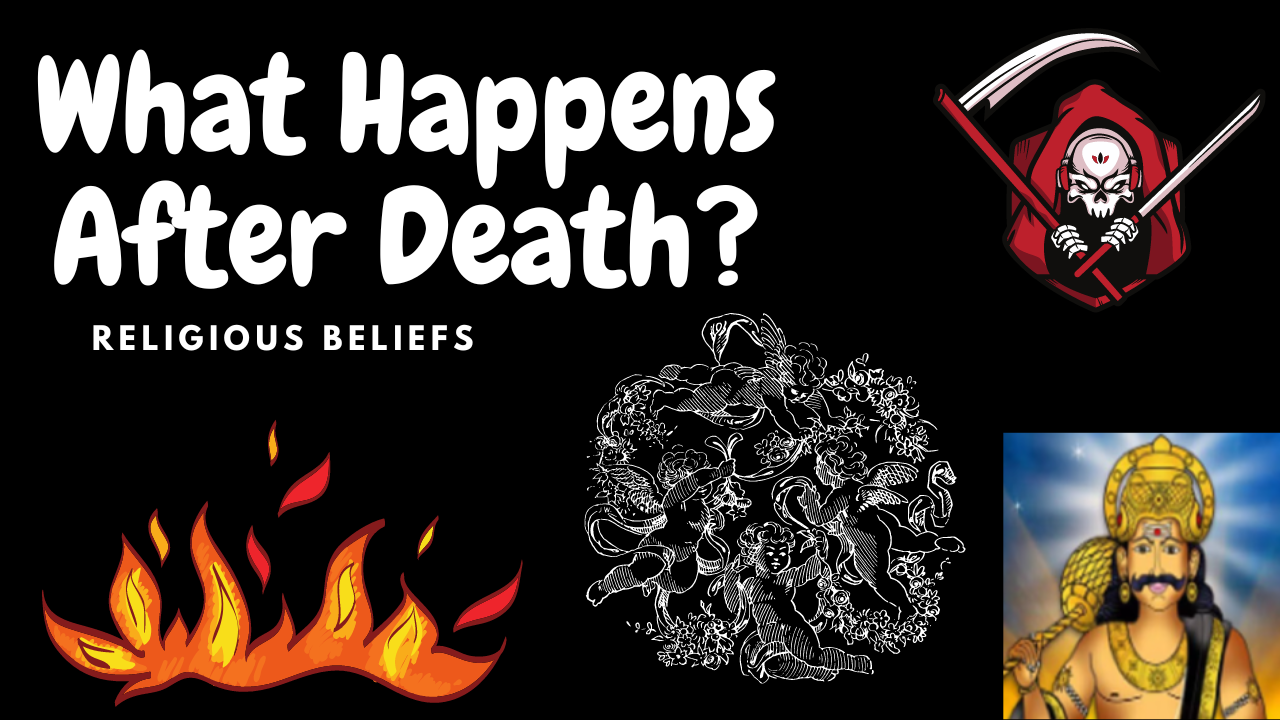Death is one of life’s great mysteries. For centuries, religions and philosophies have grappled with the question of what happens to us after death. Is it the end of consciousness, or do we move into another realm of existence? Each religion offers its own unique perspective on death, the afterlife, and what we can learn from it.
1. Christianity: Eternal Life in Heaven or Hell
In Christianity, death is seen as a transition from this earthly life to eternal existence in either Heaven or Hell. Christians believe in the concept of salvation through Jesus Christ. Those who have accepted Christ and lived righteous lives are rewarded with eternal peace in Heaven, while those who reject faith or live in sin face judgment and are condemned to Hell. The focus here is on moral living, repentance, and the hope of resurrection.
Key Lesson: Christianity teaches us the importance of faith, compassion, and preparing for an eternal existence beyond this world.
2. Islam: The Day of Judgment
In Islam, death is viewed as the beginning of a spiritual journey. Muslims believe in a Day of Judgment, when every soul will be judged based on their deeds. The righteous will be rewarded with entry into Jannah (Paradise), a place of eternal bliss, while the sinful will be sent to Jahannam (Hell). Between death and resurrection, souls experience the “Barzakh,” a barrier between the living and the dead.
Key Lesson: Islam encourages followers to live a life of piety, justice, and humility, as the afterlife is determined by how one lived on Earth.
3. Hinduism: Reincarnation and Karma
Hinduism presents a cyclical view of life and death, known as “samsara.” After death, the soul is reborn into a new life, with its next form determined by “karma”—the actions and deeds performed in previous lives. The ultimate goal is to break free from this cycle of birth, death, and rebirth (known as moksha) and unite with the divine.
Key Lesson: Hinduism emphasizes the importance of good deeds, selflessness, and spiritual growth, as these actions determine the nature of our rebirth and ultimate liberation.
4. Buddhism: The Cycle of Rebirth
Buddhism shares a similar belief in the cycle of rebirth, but with a more distinct focus on achieving “nirvana”—a state of enlightenment that transcends suffering and breaks the cycle of death and rebirth. Through meditation, moral conduct, and wisdom, Buddhists aim to free themselves from desires that bind them to the material world, thereby reaching nirvana.
Key Lesson: Buddhism teaches the impermanence of life and the value of living mindfully, letting go of attachments, and cultivating inner peace.
5. Judaism: The Mystery of the Afterlife
Judaism does not have a single, unified belief about the afterlife. Some Jewish traditions believe in “Olam Ha-Ba” (the world to come), where the righteous will be resurrected and live in peace. Others suggest the concept of “Sheol,” a shadowy existence where the dead go, but there is less emphasis on detailed depictions of Heaven and Hell.
Key Lesson: Judaism places more importance on living a good and moral life here and now, rather than focusing on what happens after death.
6. Atheism and Secularism: Death as the End
For many atheists and secularists, death is seen as the end of consciousness. There is no afterlife or spiritual continuation, and existence ceases upon death. The focus is on making the most out of life while it lasts, valuing human relationships, and contributing positively to society.
Key Lesson: Atheism teaches us to find meaning and purpose in this life, recognizing the finite nature of our existence.
Conclusion: After Death —A Shared Destiny, Diverse Paths
While the beliefs surrounding death and the afterlife vary across religions, there is a common thread that ties them together: the belief that our actions and choices in life matter. Whether it’s through preparing for an eternal paradise, seeking enlightenment, or striving for liberation from the cycle of rebirth, most religions teach that death is not just the end, but a transition or transformation.
However, what remains universal is the mystery of death. No matter our beliefs, we all face death at some point. This inevitable reality gives life its urgency, reminding us to live fully, be kind, and cherish every moment.
A Lesson for Readers: Live a Life of Purpose
The exploration of death through various religious lenses teaches us that we should focus on living a meaningful life rather than worrying about what happens after death. Death is a natural part of life, and while we may not have all the answers, we can ensure that our time on Earth is spent with purpose, kindness, and a commitment to self-betterment.
In the end, death teaches us the most valuable lesson of all—life is fleeting. So, make the most of it, embrace your loved ones, help others, and leave a legacy that outlives you. Whether you believe in an afterlife, reincarnation, or nothing at all, how you live your life now is what truly matters.
Similar Blogs:



